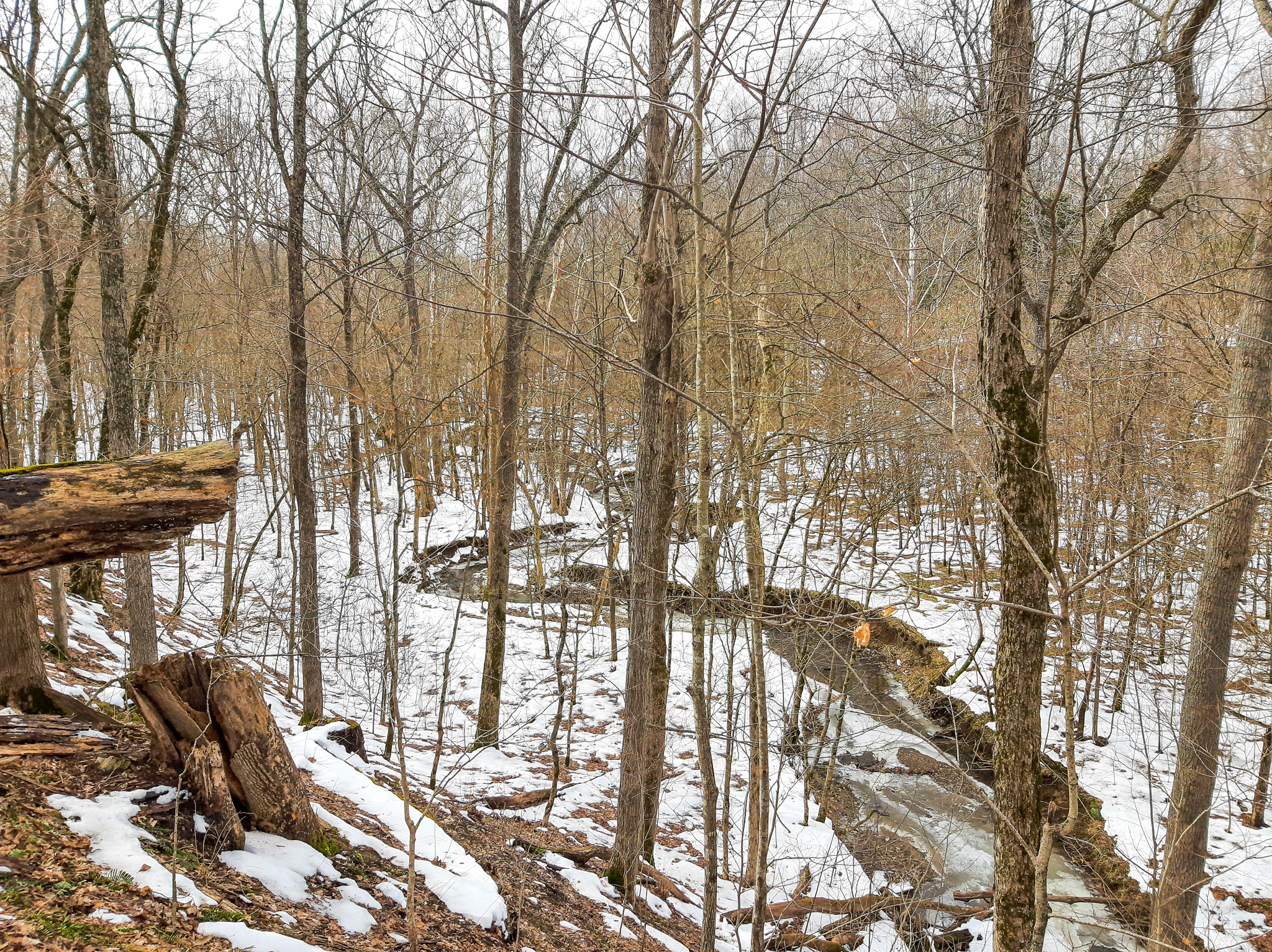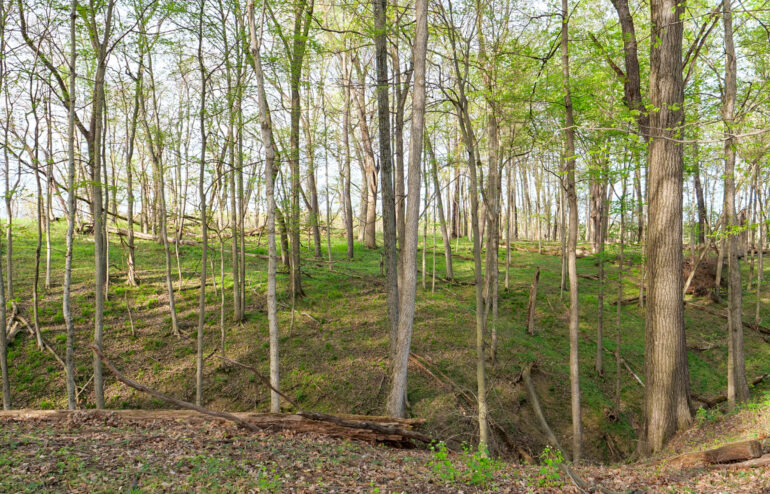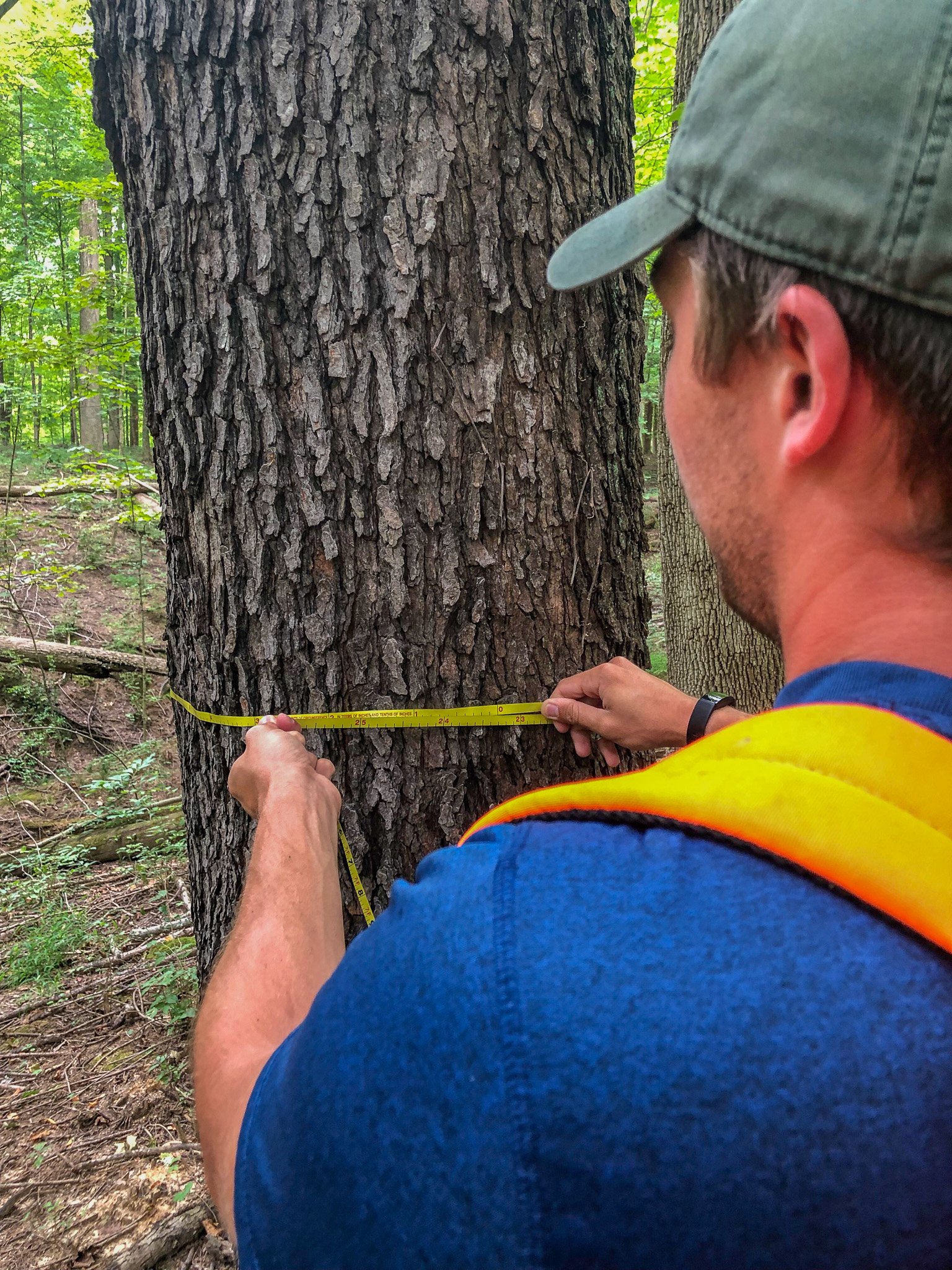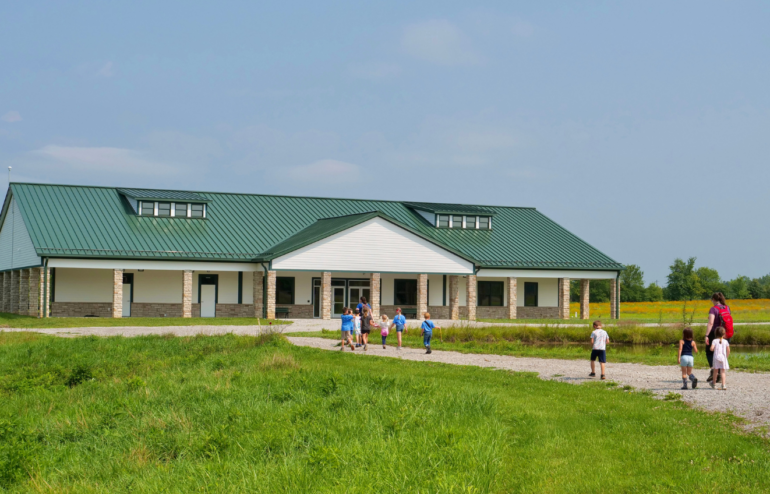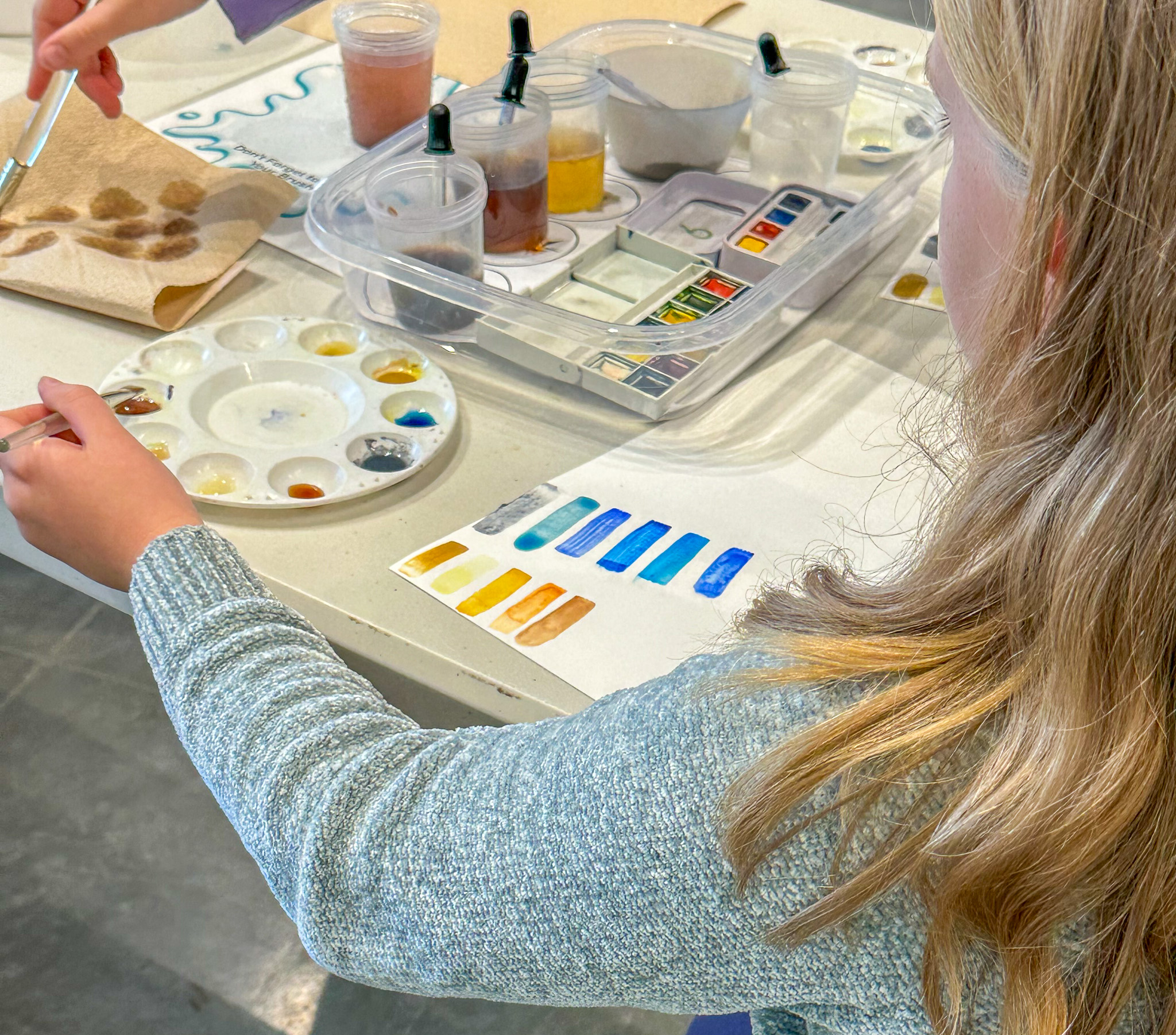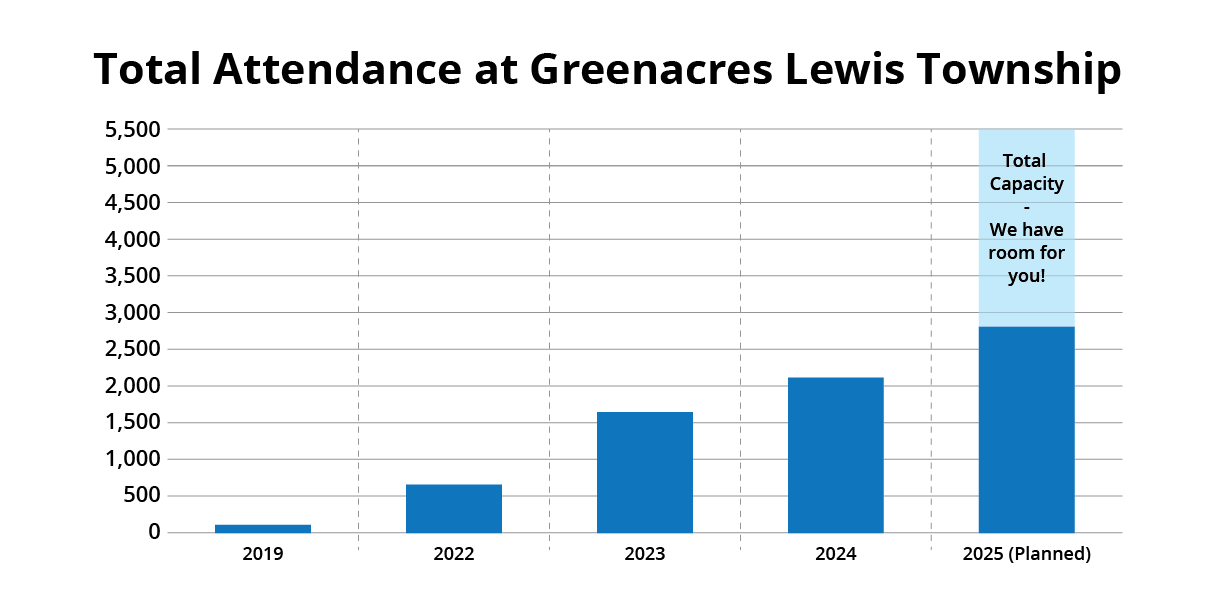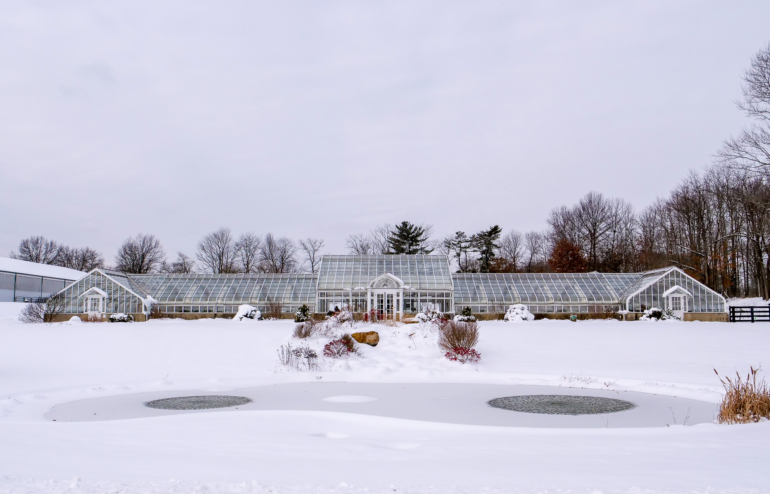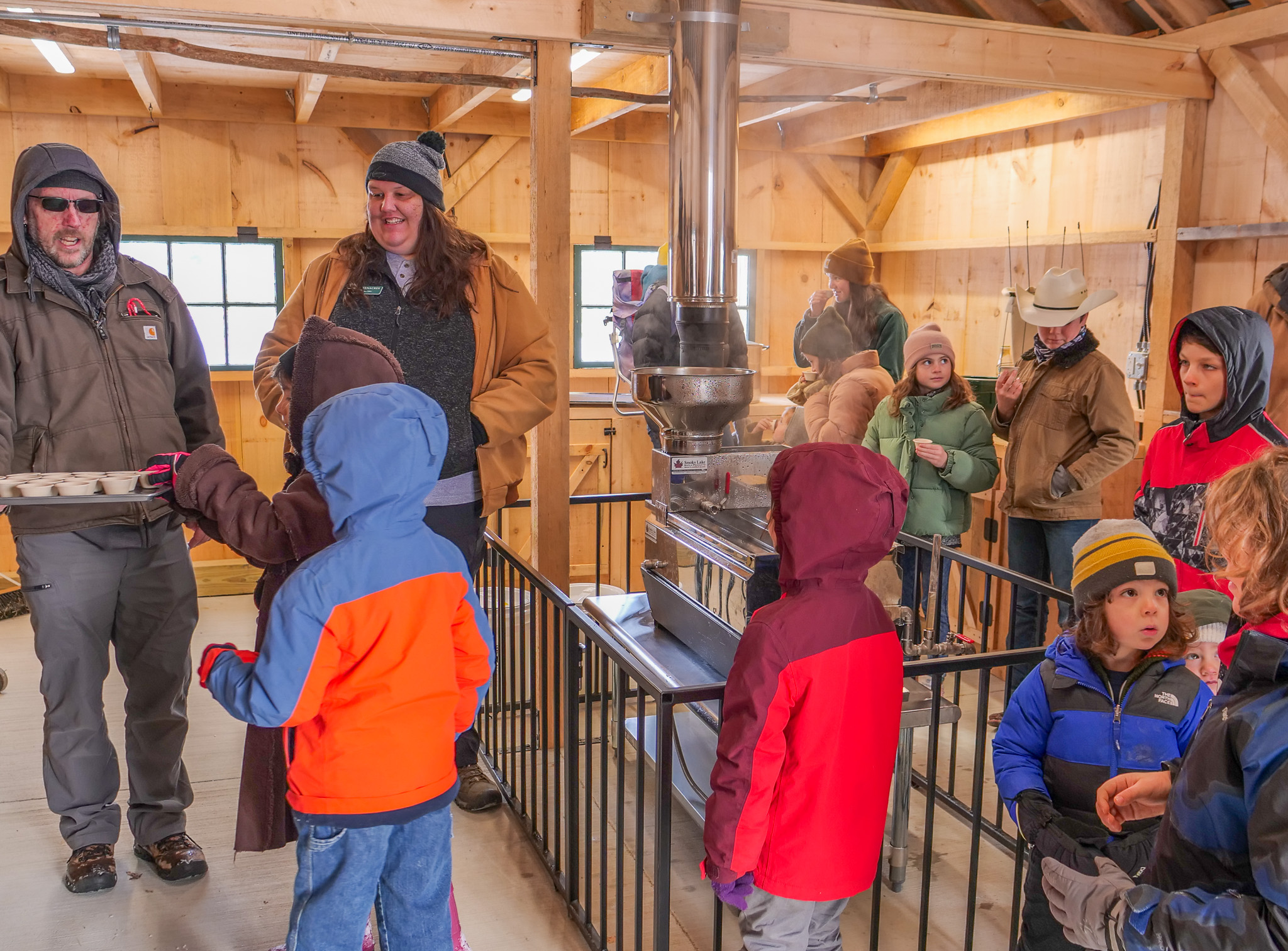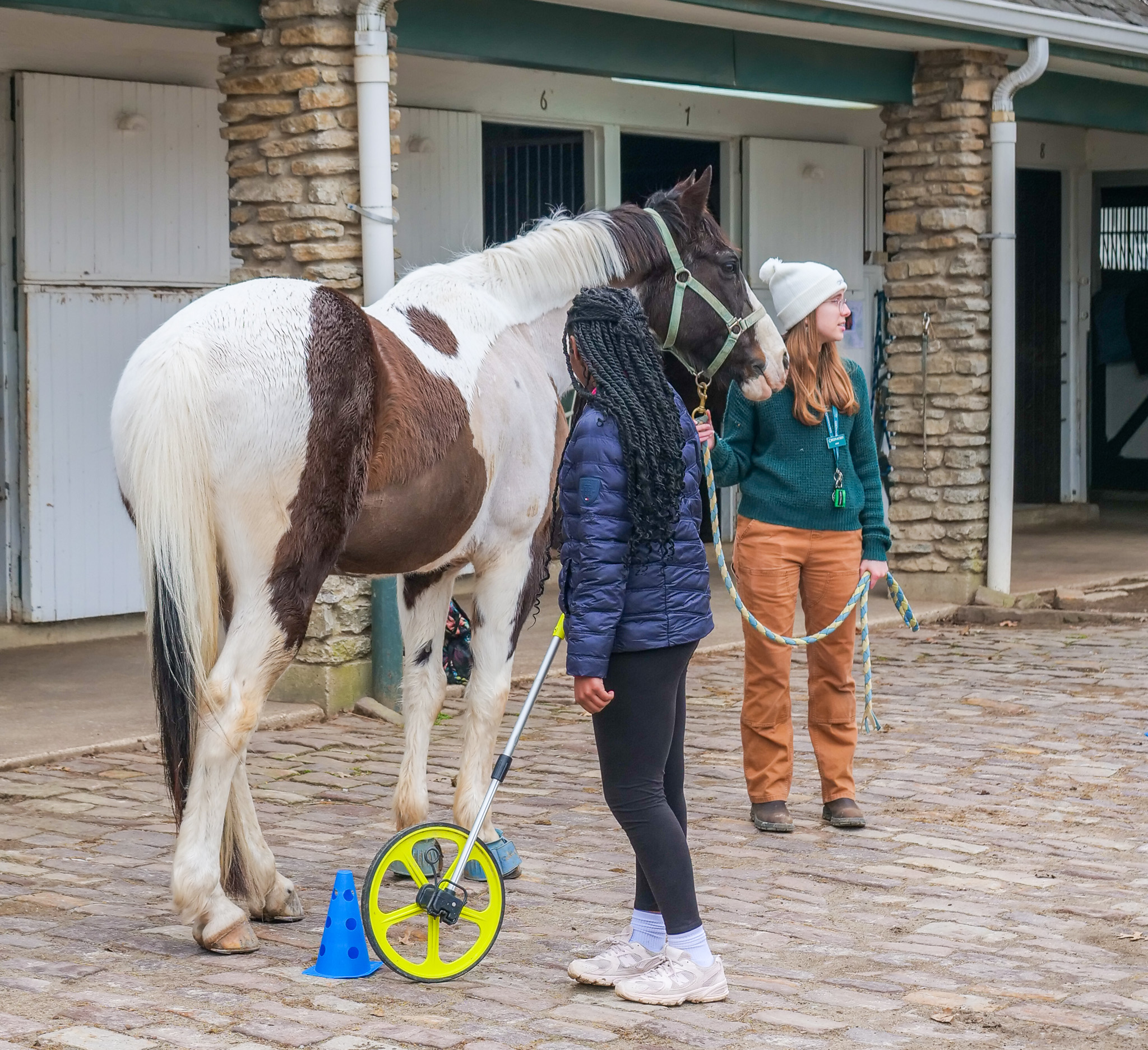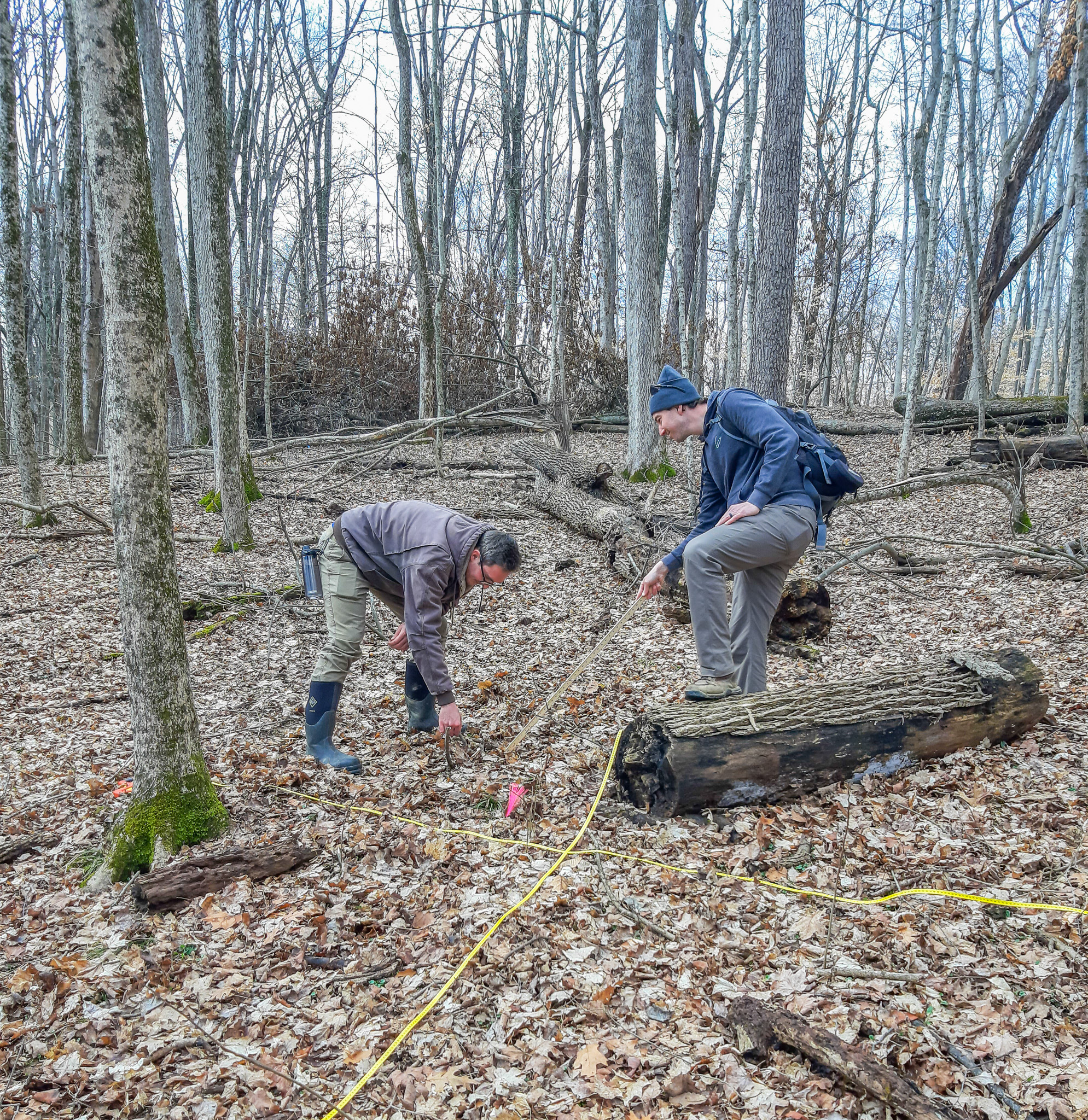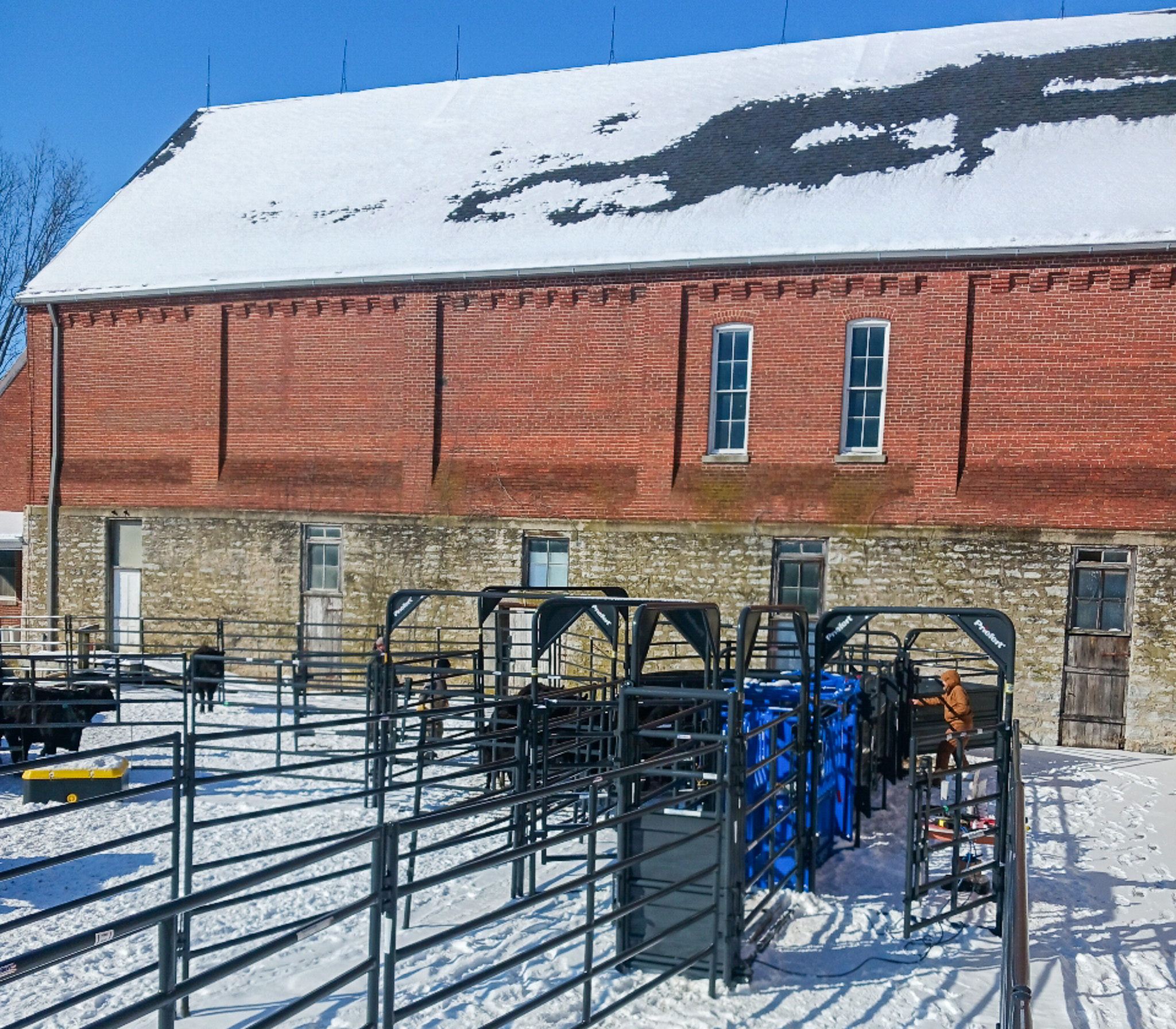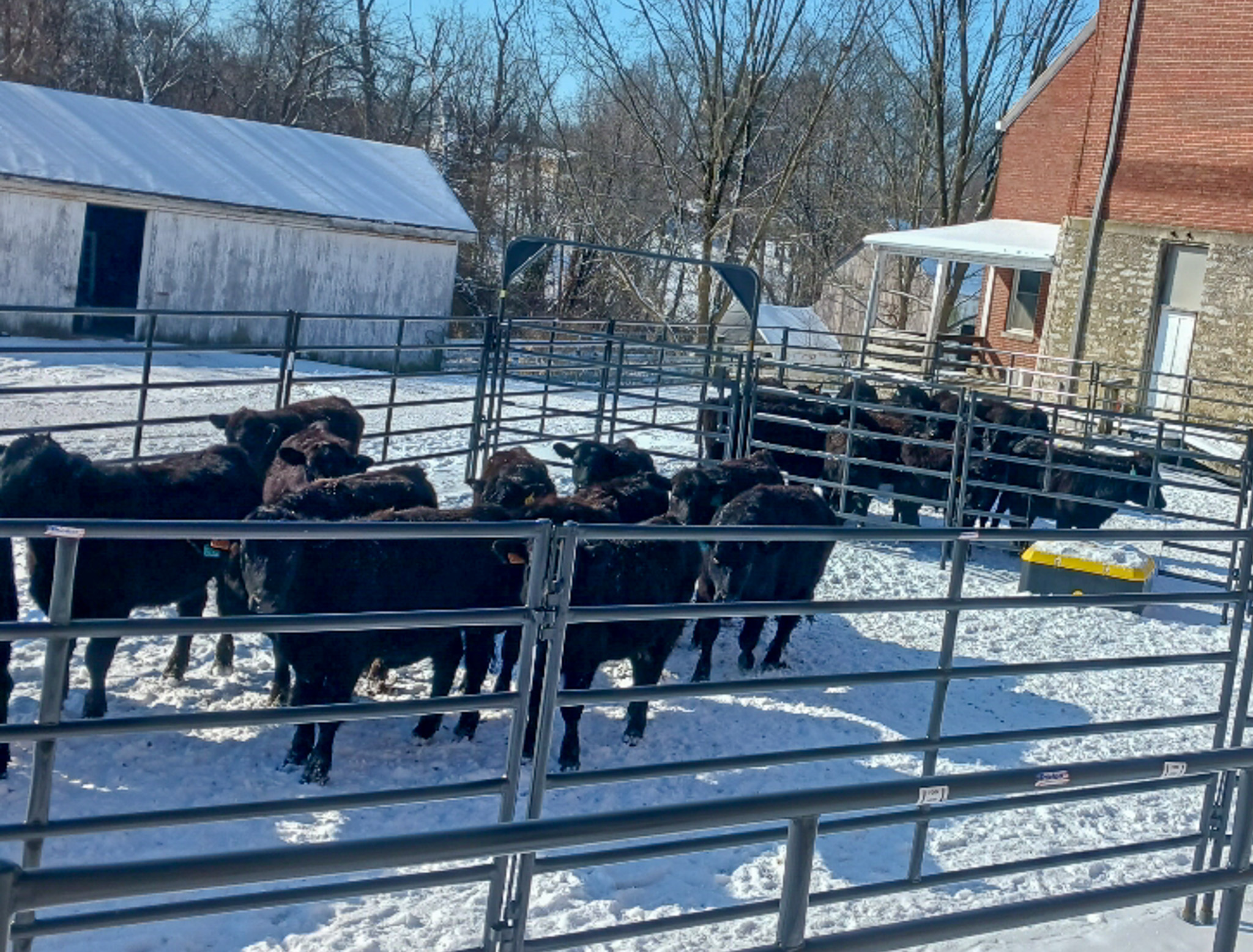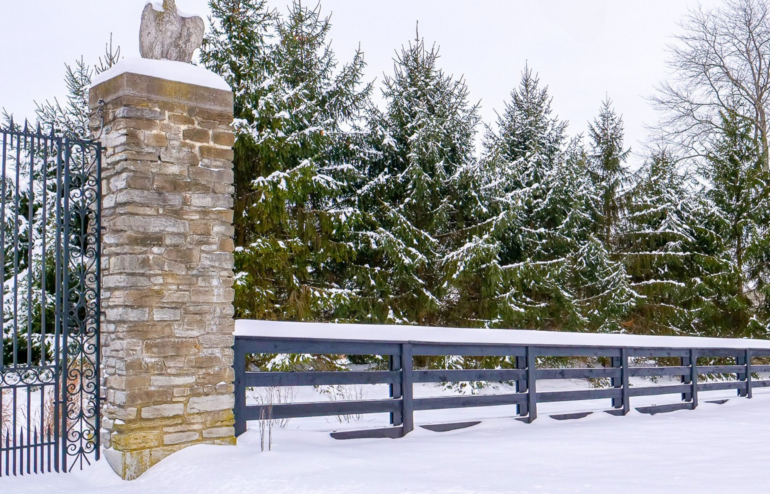
Shedding Light on the Forest: How Data is Guiding Our Work at Greenacres Lewis Township
It’s difficult to care for something you don’t fully understand. Managing land without information is like navigating in the dark—each step uncertain. At Greenacres, we believe in beginning with knowledge. That’s why we use data to guide our decisions, helping us understand where we are and where we need to go.
Recently, one of our largest efforts has focused on the forests at Lewis Township in Brown County, Ohio. Together, our Land Management and Research departments have been developing a long-term land management plan to protect and restore this unique landscape. The plan identifies current conditions, potential threats, and a roadmap for improving the health of the ecosystems found there.
Why a Tree Inventory?
Roughly two-thirds of the Lewis Township property—about 350 acres—is forested. Until recently, this area was largely unexplored by our staff. We lacked key information about the trees growing there, such as what species were present, how big they were, and how densely they were growing. Since trees are the foundation of any forest ecosystem, this information is essential to managing the land responsibly.
To close that knowledge gap, we conducted a comprehensive tree inventory. It was a big job: nearly 3,000 trees were measured and identified, representing 41 different species. The results are helping us better understand the forest and plan for its future.
What We Measured—and Why
Our inventory focused on four important aspects of forest health:
-
-
- Native Species Diversity: A variety of native tree species helps support more wildlife and makes the forest more resilient to stress.
-
-
-
- Species Quality: Some trees play a bigger role in conservation due to their value to wildlife or their sensitivity to environmental change.
-
-
-
- Size Complexity: Forests with trees of all sizes—from saplings to giants—are better at supporting different types of wildlife and indicate that the forest is naturally regenerating.
-
-
-
- Basal Area: This measures how dense the forest is by calculating the total area of tree trunks at chest height per acre. Higher values usually mean a darker, cooler, and more mature forest.
-
We combined these four measurements into what we call a Forest Quality Score. This score helps us identify the highest-quality areas of the forest—those that will likely become a focus for conservation and careful management.
What We Learned
Two major insights came from this project:
-
-
-
Forest Uniformity: Much of the forest has a similar density—about 100 square feet of tree trunk per acre. That’s common in forests that regrew after logging in the mid-1900s. These forests have closed canopies, little sunlight reaching the forest floor, and limited plant diversity in the understory. While mature forests are important, having the entire landscape look the same limits the variety of habitats available to wildlife. That’s why we’re considering creating more open areas, like woodlands and savannas, which historically occurred through natural disturbances and support different plant and animal species.
- The Future of Oaks: Oaks are a keystone species in many eastern U.S. forests, and they’re abundant at Lewis Township. But their future is uncertain. Oak seedlings need sunlight to grow, and in these dense forests, they’re losing ground to shade-tolerant species like maples. Our inventory did uncover several areas where oaks are thriving and regenerating naturally. These zones could become priority areas for management efforts to support oak populations and ensure their long-term survival.
-
-
Moving Forward
Now that we have a clearer picture of the forest, we can move forward with confidence. This tree inventory gives us the tools we need to make informed decisions, protect what’s thriving, and restore what’s not. It’s a major step toward building a healthier, more resilient landscape at Lewis Township—one that supports diverse wildlife, strong native plant communities, and the long-term ecological sustainability that Greenacres is committed to.
